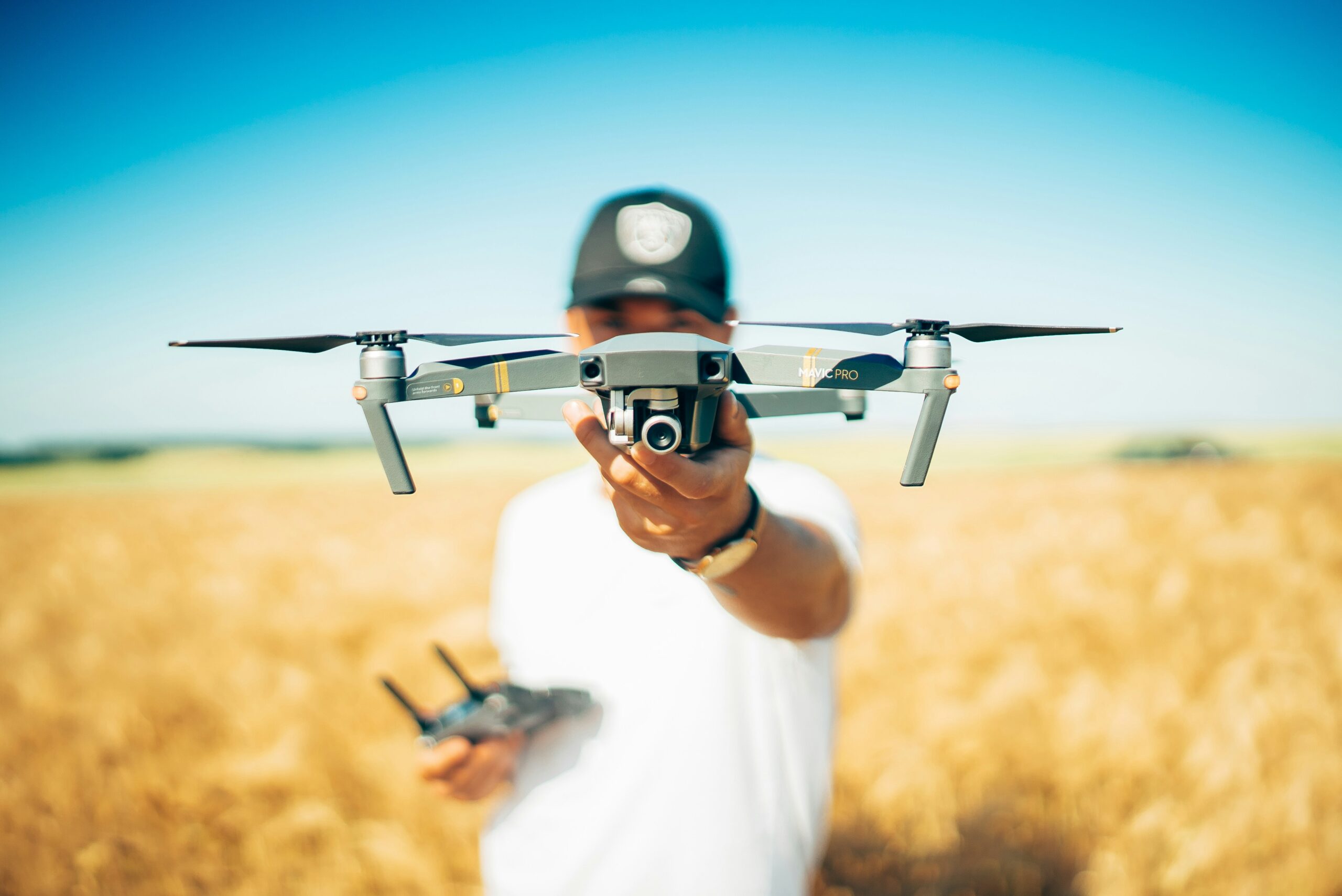Imagine the breathtaking views you could capture if you could fly a drone on Mount Shasta. This majestic mountain, located in northern California, is known for its stunning natural beauty and picturesque landscapes. But before you rush to pack your drone for an adventure, there are some important things you need to know. In this article, we will explore the regulations and restrictions surrounding drone usage on Mount Shasta, ensuring you have all the information you need to safely and legally capture those awe-inspiring aerial shots. So, let's get started and uncover the guidelines for flying drones in this captivating mountainous region.
Understanding Drone Laws in General
Drone laws refer to the regulations and guidelines put in place by governments to ensure the safe and responsible operation of unmanned aerial vehicles, commonly known as drones. These laws aim to balance the growing popularity of drones with the need to safeguard public safety, privacy, and airspace integrity. They cover various aspects such as registration requirements, flight restrictions, altitude limitations, and rules regarding flying near people, buildings, and natural landmarks.
In the United States, drone laws are governed by both federal and state regulations. The Federal Aviation Administration (FAA) oversees and enforces the federal drone laws, which are applicable nationwide. These laws provide a framework for the safe operation of drones, regardless of the state in which they are flown.
Drone laws are of utmost importance to ensure the safety of the airspace and those on the ground. They help prevent collisions with manned aircraft, protect sensitive areas, and maintain privacy rights. Additionally, these regulations ensure that drone pilots understand their responsibilities and are aware of the potential risks associated with flying unmanned aircraft.
Specific Drone Laws in California
California, often regarded as a hub for technological innovation, has its own set of drone laws at the state level. These laws complement the federal regulations and provide further guidelines specifically tailored for the state's unique landscape, population density, and environmental concerns.
The California drone laws prohibit the operation of drones near airports, prisons, wildfire areas, and within 400 feet of state parks and beaches. The regulations also mandate that drones be flown within the operator's line of sight and during daylight hours. Moreover, all drones weighing more than 250 grams must be registered with the FAA.
With its stunning natural landmarks and diverse ecosystems, California holds specific regulations pertaining to flying drones near these areas. These laws ensure the preservation of these remarkable sites while allowing drone operators to capture breathtaking footage and imagery.

Knowing Mount Shasta
Mount Shasta, located in Northern California, is a majestic and iconic natural landmark that draws visitors from around the world. Rising to an elevation of 14,179 feet, this dormant stratovolcano is not only a visually stunning sight but also holds cultural and spiritual significance for many indigenous tribes.
Mount Shasta is surrounded by a vast wilderness and offers a diverse range of flora and fauna. The mountain is home to several unique species, including the Mount Shasta western blue butterfly and the Mount Shasta salamander. Its pristine wilderness and ecological importance make it a cherished natural asset.
Drone Laws on Mount Shasta
When it comes to flying drones on Mount Shasta, it is essential to adhere to the specific laws and regulations governing the area. As a protected natural landmark, drone flights on Mount Shasta are subject to certain restrictions to preserve the environment and maintain visitor safety.
According to the current regulations, drone flights on Mount Shasta are only permitted in designated areas and must not exceed certain altitudes. These restrictions are in place to ensure the safety of both the drone operators and the visitors exploring the mountain's natural beauty.
Failure to comply with the drone laws on Mount Shasta can result in fines and other consequences. This emphasizes the need for drone operators to familiarize themselves with the regulations and fly responsibly within the established guidelines.

Documenting Mount Shasta with a Drone
Utilizing drones for capturing aerial footage of Mount Shasta offers numerous benefits. Drones provide a unique vantage point that allows photographers and videographers to showcase the mountain's grandeur from a perspective that was previously inaccessible. The sweeping aerial shots offer a fresh and captivating view, allowing viewers to appreciate the magnitude and beauty of Mount Shasta.
Drone footage of Mount Shasta is not only visually stunning but also serves scientific and conservation purposes. Researchers can use high-resolution imagery to study the ecological changes on the mountain, monitor wildlife populations, and assess any potential environmental concerns.
Moreover, drone footage can play a crucial role in promoting tourism and generating interest in Mount Shasta. By capturing the mountain's allure from above, drones can inspire and attract visitors to experience the natural wonders that this region has to offer.
Case Studies of Drone Use on Mount Shasta
Several instances of drone flights on Mount Shasta have been legally documented and showcase the immense potential for aerial photography and videography. These instances highlight how drones can be utilized in a responsible and respectful manner, adhering to the established regulations.
However, there have also been cases of controversial or illegal drone flights on Mount Shasta. These instances often involve individuals disregarding the laws and restrictions in place, potentially endangering the safety of others and the natural environment. Such actions tarnish the reputation of responsible drone operators and emphasize the importance of adhering to the established regulations.

Seeking Permission to Fly a Drone on Mount Shasta
Obtaining the necessary permits and permissions to fly a drone on Mount Shasta requires adherence to a specific process. The first step is to identify the appropriate authority or agency responsible for issuing permits for drone flights in the area.
In the case of Mount Shasta, it is advisable to contact the U.S. Forest Service or the respective park authority overseeing the region. These agencies are responsible for managing the natural resources and ensuring that any drone flights are conducted in accordance with the established guidelines.
The procedure for securing a drone flight permit on Mount Shasta may involve submitting an application, providing proof of registration, and demonstrating compliance with the specified regulations. It is vital to allow sufficient time for the application process, ensuring that all requirements are met before planning any drone flights.
Safety Precautions When Operating Drones on Mountains
Operating drones in mountainous areas presents unique challenges and requires additional safety precautions. These precautions are essential to safeguard both the drone and the surrounding environment, while also minimizing the potential risks to human life and property.
Some general safety tips for operating drones include conducting thorough pre-flight checks, maintaining line of sight, flying within specified altitude limits, and avoiding flying over crowds and heavily populated areas. Additionally, it is crucial to be aware of weather conditions and wind patterns that can impact the drone's stability and control.
Specific to mountain terrain, drone operators should exercise caution when navigating challenging landscapes and ensuring their drone remains a safe distance from cliffs, trees, and other natural features. Familiarizing oneself with the specific hazards and geographical characteristics of the mountain before flying can greatly enhance safety during drone operations.
Other Places to Fly Drones in California
While Mount Shasta offers a captivating location for drone flights, California boasts several other destinations that are equally suitable for aerial photography and videography. These locations provide diverse landscapes and stunning vistas that can rival the beauty of Mount Shasta.
Some recommended places for drone flying in California include Yosemite National Park, Big Sur, Lake Tahoe, Joshua Tree National Park, and the Golden Gate Bridge. Each of these locations provides unique opportunities for capturing breathtaking footage and imagery, allowing drone operators to showcase the state's natural and architectural wonders.
Comparing these locations with Mount Shasta, each offers its distinct charm and character. Whether it's the awe-inspiring granite cliffs of Yosemite, the rugged coastline of Big Sur, or the desert grandeur of Joshua Tree, drone enthusiasts have a plethora of options to explore in California.
The Future of Drone Laws on Mount Shasta
As drone technology continues to advance and popularity grows, it is expected that drone laws will also evolve to adapt to changing circumstances and concerns. The current trends in drone regulations point towards stricter enforcement of existing laws, increased emphasis on pilot training and certification, and potential revisions to address emerging issues such as privacy concerns and urban airspace management.
These anticipated changes may also impact drone flights on Mount Shasta. It is essential for drone operators to stay informed and comply with the evolving regulations to ensure the continued safety and responsible use of drones on this stunning natural landmark.
In conclusion, understanding drone laws, both at the federal and state levels, is crucial for every drone operator, particularly when capturing footage on natural landmarks like Mount Shasta in California. By adhering to the specific regulations and obtaining the necessary permits, drone enthusiasts can document the awe-inspiring beauty of Mount Shasta while preserving the environment and ensuring public safety. While the legal landscape surrounding drone operations may evolve in the future, the importance of responsible and ethical drone flights will always remain paramount. So, before you embark on your drone adventure on Mount Shasta or any other location, make sure to familiarize yourself with the laws, seek necessary permissions, and fly safely!
